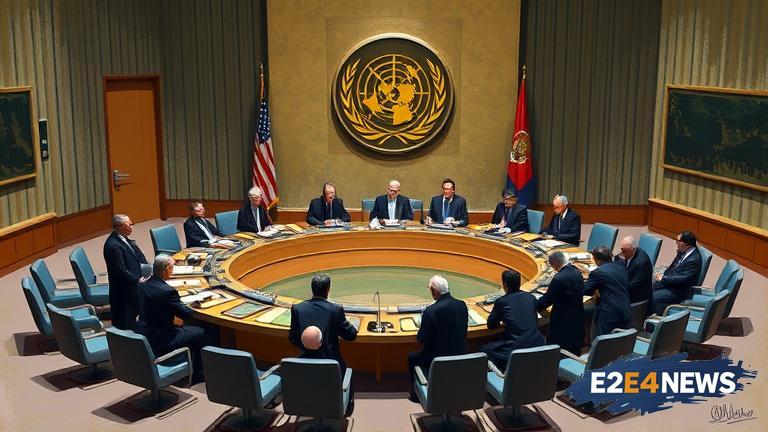The United Nations Security Council has been criticized for its inability to effectively address global conflicts, with many calling for the body to issue binding resolutions to halt wars and protect civilians. The council’s five permanent members, including the United States, China, Russia, France, and the United Kingdom, have been accused of using their veto power to block resolutions that could bring an end to conflicts. This has led to widespread frustration and disappointment among UN member states and civilians affected by war. The Syrian civil war, which has been ongoing for over a decade, is a prime example of the council’s inability to take decisive action. Despite numerous resolutions and statements, the conflict continues to rage on, resulting in the deaths of hundreds of thousands of people and the displacement of millions. The situation in Yemen is also a cause for concern, with the council failing to take adequate action to address the humanitarian crisis caused by the ongoing conflict. The UN has estimated that over 20 million people are in need of humanitarian assistance in Yemen, with many more at risk of famine and disease. The council’s inaction has been attributed to the veto power wielded by its permanent members, which has allowed them to block resolutions that could have brought an end to the conflict. The use of veto power has been criticized as a major obstacle to the council’s ability to effectively address global conflicts. Many have called for reforms to the council’s structure and decision-making processes to prevent the misuse of veto power. The UN Charter gives the Security Council the power to impose sanctions and authorize the use of force to maintain international peace and security. However, the council’s inability to take decisive action has led to a crisis of confidence in the body. The international community is increasingly looking to other institutions and mechanisms to address global conflicts, rather than relying solely on the Security Council. This has led to a proliferation of ad hoc coalitions and alliances, which can undermine the authority of the UN and create confusion and inconsistency in international relations. The need for reform is urgent, with the consequences of inaction being felt by civilians around the world. The UN Secretary-General has called for reforms to the council’s structure and decision-making processes, including the limitation of veto power and the expansion of the council’s membership. However, these reforms have been met with resistance from the council’s permanent members, who are reluctant to give up their power and influence. The international community must continue to push for reforms to the Security Council, to ensure that the body is able to effectively address global conflicts and protect civilians. This can be achieved through a combination of diplomatic efforts, advocacy, and grassroots mobilization. The UN must also work to strengthen its partnerships with other international organizations and institutions, to ensure a coordinated and effective response to global conflicts. Ultimately, the Security Council must be willing to take decisive action to halt wars and protect civilians, rather than simply issuing statements and resolutions that have little impact on the ground. The consequences of inaction are too great, and the international community must demand more from the UN and its member states. The UN Security Council has a critical role to play in maintaining international peace and security, and it is imperative that the body is reformed to ensure that it can effectively address global conflicts. The council’s inability to take decisive action has led to a crisis of confidence in the body, and it is up to the international community to demand reforms and ensure that the UN is able to fulfill its mandate. The situation in Ukraine is another example of the council’s inability to take decisive action, with the conflict ongoing despite numerous resolutions and statements. The international community must continue to push for a peaceful resolution to the conflict, and the UN Security Council must be willing to take decisive action to support this effort. The use of diplomacy and dialogue is critical in resolving global conflicts, and the UN Security Council must be willing to engage in these efforts to bring an end to wars and protect civilians. The council’s permanent members must also be willing to work together to address global conflicts, rather than allowing their individual interests to dictate their actions. The UN Security Council has a unique role to play in maintaining international peace and security, and it is imperative that the body is reformed to ensure that it can effectively address global conflicts. The international community must demand more from the UN and its member states, and the council must be willing to take decisive action to halt wars and protect civilians.





